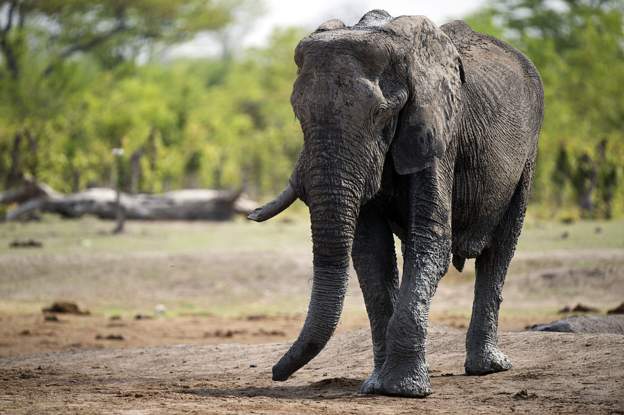Elephants are a major tourist attraction in some African countries but are under threat by poachers
High poverty levels in Uganda have seen poachers accept payments as low as Shs200,000 to kill an elephant that weighs 400-600Kgs, a study conducted by Alliance for Finance Monitoring (ACFIM,a Civil Society Organisation, has revealed.
Unveiling the findings of the study in Kampala today, Robert Lugoloobi, the lead researcher of the study said that trafficking in wildlife is one of the emerging forms of corruption in Uganda.
The study revealed that some of the money illegally acquired ends up financing politics and other forms of malfeasance.
“One of the things escalating the wildlife illicit trade is the high level of poverty which provide a conducive environment. When I went to Kisoro district and interviewed the people, I asked them; ‘how much are you given if you kill an animal?’ They said ‘Shs200,000 or Shs150,000. So you kill an elephant and you are given Shs200,000, but that elephant is between 400-600Kgs but what you want is just the ivory,” Lugoloobi said.

Lugoloobi said that illicit wildlife trade is driven by need to meet poachers’ economic needs and is facilitated by weak governance and the fact that poaching is socially accepted, most Ugandans do not view it as a bad practice.
The study was conducted in parts of Kampala, Western and Northern Uganda with 47 interviews conducted among public officials, wildlife communities, anti-wild life trade advocates among others.
The research overseen by Swiss based Basel Institute in Governance that is operating in 7 nations made a number of recommendations including development of sustainable schemes to generate alternative economic activities for vulnerable groups and high level of political support to combat the vice.
It is worth noting that President Museveni signed the new Uganda Wildlife Act 2019, to replace that old Uganda Wildlife Act 1996, and the new law provides stringent penalties like the maximum fine of Shs20 billion or life imprisonment, or both for an offence related to being found in possession with a wildlife species classified as extinct in the wild, critically endangered.
A Report of the High Level Panel on Illicit Financial Flows from Africa, noted that Africa is estimated to lose more than $50bn a year in illicit financial flows. Uganda loses an average of $509m approximately Shs1.866Trn in illicit outflows per year. Illegal wildlife trade (IWT) is the fourth-largest illicit activity worldwide, generating $7 – 23bn per year. Little is known about these illicit money flows in source and transit areas like Uganda.





